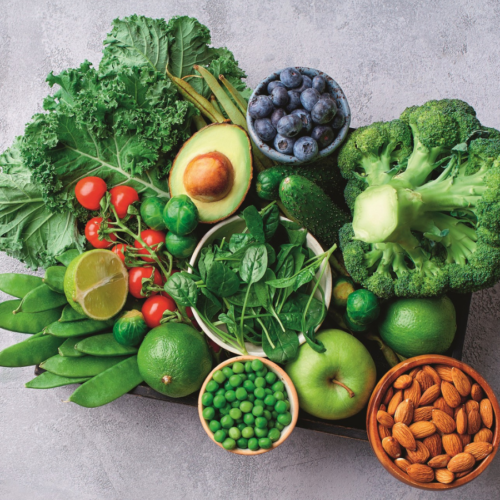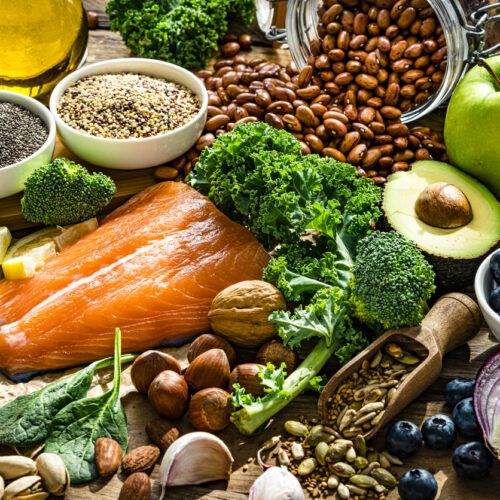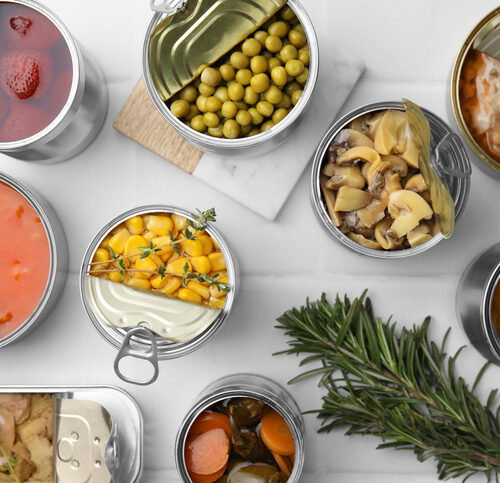
Nutritionist Rose Carr investigates whether certain foods live up to the medicinal properties they have the reputation for.
Cranberry juice – for prevention of urinary tract infections (UTIs)
What science says
Evidence from several randomised control trials (RCTs), where participants using cranberry juice were compared to others using a placebo, shows regular consumption of cranberry juice may decrease the number of UTIs over a 12-month period. This seems to be more effective for women who suffer recurrent UTIs, with up to a 50 per cent reduction in their occurrence, but may not be effective in older women.
As there have been relatively few trials and their methods have varied, there is not any clear evidence about an effective dosage. One group of authors who reviewed the evidence suggests a glass of cranberry juice twice daily may be appropriate. Laboratory studies have shown that cranberry juice can stop the bacteria cells which cause UTIs from sticking to cells of the bladder, with the effect lasting about 10 hours (hence the ‘twice daily’ advice). Some studies had high dropout rates as some people don’t like the tartness of cranberry juice, some put on weight and some had mild gastrointestinal reactions. Note that cranberry juice may help prevent a UTI but cannot help treat it.
Our advice
Worth a try if you suffer from UTIs, but we’d recommend you try a ‘light’ cranberry juice otherwise you add more kilojoules to your day.
Honey – for healing wounds and stomach upsets
What science says
Numerous laboratory studies have established the antibacterial credentials of honey. The antibacterial power of different honeys, however, will vary. Honey has also been found to be antifungal, anti-inflammatory, and acts as an antioxidant.
Active manuka honey with ‘Unique Manuka Factor’ (UMF) is about twice as effective as other honeys against Escherichia coli and Staphylococcus aureus, the most common causes of infected wounds. Manuka honey with a rating of UMF10 or higher is used in hospitals around the world as a wound dressing, where it effectively treats wounds that haven’t responded to standard treatments. It can also work in cases where patients have developed resistance to the usual antibiotics.
UMF honey may also be effective in treating the bacteria which causes most stomach ulcers, Helicobacter pylori, but the evidence is limited to laboratory studies. While honey is potentially useful for stomach ulcers and other medicinal uses, clinical trials have not been undertaken.
Our advice
If you want to try using honey as a wound dressing, go to www.waikato.ac.nz/ and follow the advice on ‘The way honey is used as a wound dressing (practical information)’.
While there’s not enough evidence to suggest taking honey for stomach complaints, manuka honey is a delicious food you could add to your diet in place of other sugars. Make sure you consult a health professional for serious stomach problems.
Green tea – for everything from weight-loss to cancer prevention
What science says
Green and black teas contain potent antioxidants. Laboratory studies have shown that catechins, a group of antioxidants, in green and black teas act as powerful inhibitors of cancer growth. In studies of liver, skin, and stomach cancers, tumors were shown to decrease in size in mice that were fed green or black tea.
While studies in people have so far shown mixed results, population studies show that drinking three or more cups of tea each day may be associated with a number of benefits. Clinical trials continue to investigate tea’s role in fighting tooth decay, increasing bone density, assisting with weight management and blood glucose control, and reducing cardiovascular disease risk and anti-cancer effects.
There’s some evidence that tea improves mental alertness but this is most likely because of its caffeine content. Both green and black teas contain caffeine.
Our advice
Enjoy green and black teas as part of your fluid intake for the day. Both appear to be good for health.
Curry spices – for Alzheimer’s and rheumatoid arthritis
What science says
Studies have found exceptionally low rates of Alzheimer’s disease and dementia among older people in India compared to their Western peers. While there may be other reasons, consumption of curry spices, in particular turmeric, could help explain this phenomenon. There is now substantial laboratory evidence that curcumin, a chemical constituent of turmeric, has antioxidant and anti-inflammatory activity and can protect neural cells from degenerative disease.
Animal studies of Alzheimer’s disease have also shown a direct effect of curcumin in decreasing the degeneration of nervous tissue that is associated with Alzheimer’s. While there is optimism these findings will lead to a treatment for Alzheimer’s, it’s still early days in the science: large-scale human studies are needed to identify preventative and therapeutic uses of curcumin.
Animal studies have also shown positive results using turmeric extracts for the prevention and treatment of rheumatoid arthritis. But again, clinical trials are still needed to establish its effectiveness for people.
Our advice
Include curry spices (especially turmeric) in your diet in curries and flavoured rice dishes – they add flavour and taste great. So far, the studies tend to suggest we would need to consume large amounts of spices to get a preventative or therapeutic effect; we don’t suggest you overdo the curry spices as there’s not enough evidence yet on safe levels.
Lemon and honey drink – for relieving cold symptoms
What science says
While lemon juice may add to the flavour and a hot steamy drink might help decongestion, it seems the honey is doing the real work here. In a 2007 US study, children and adolescents with upper respiratory tract infections were given either two teaspoons of honey, a common over-the-counter cough suppressant (dextromethorphan) or no treatment. Parents rated honey the highest for symptomatic relief of their child’s night-time cough and sleep difficulty due to the child’s breathing. There have been few other studies and honey may not be effective for chronic coughs.
Our advice
Two teaspoons of honey could be an economical alternative to a bought cough suppressant. Remember, however, that a cough can sometimes be useful to clear airways.
Cider vinegar – for digestion, weight loss and diabetes (to name a few)
What science says
While there’s no expectation cider vinegar will be found to be the cure-all some claim, there is some interesting research emerging from the few studies that have been undertaken so far. An animal study found cider vinegar helped improve the cholesterol levels of mice with diabetes; and small trials of healthy adults have found when a little vinegar is added to a bread-based meal the participants feel fuller for longer and their blood-glucose response to the meal is improved. It appears the acetic acid from vinegar slows the rate of emptying from the stomach.
Our advice
There’s no compelling evidence we should all start drinking cider vinegar but if you want to try it, remember vinegar is highly acidic and can irritate the throat so it’s best taken diluted or with food. One tablespoon or two seems to be all that’s required, so a vinaigrette dressing for your salad is perfect.
Remember vinegar can interfere with some medications, including insulin. It’s best to check with a medical professional before adding any type of remedy to your routine.
Garlic – for general health and a long life
What science says
Population studies suggest higher intakes of garlic could reduce the risk of developing some cancers, including cancers of the stomach, colon, oesophagus, pancreas and breast. Protective effects from garlic could come from its antibacterial properties, or from its ability to block the formation and activation of cancer-causing substances, enhance DNA repair, reduce cell proliferation, or induce cell death. If garlic consumption does reduce the risk of developing cancer, the amount needed is not known as there have been few RCTs.
Numerous laboratory and animal studies support the theory that consuming garlic could positively influence cardiovascular health, but clinical trials have been inconsistent.
Blood pressure-reducing properties of garlic have been linked to its hydrogen sulphide production and allicin content. A recent review of 25 RCTs concluded that garlic preparations were effective in reducing blood pressure in people with hypertension, although the studies were focused on short-term effects. And it seems any effect garlic has on cholesterol levels may be short-lived. A recent RCT tested the effects of three garlic preparations on blood lipids on people with raised LDL-cholesterol over a six-month period and none of the products had statistically or clinically significant effects on participants’ blood lipids.
Our advice
Include garlic in your diet. Overall population studies and laboratory studies suggest garlic in the diet is likely to be beneficial, but we are a long way from knowing how to use garlic as a ‘medicine’ or whether we even should. Be careful if you are on blood-thinning medication, as large amounts of garlic can interfere with this.
www.healthyfood.com










